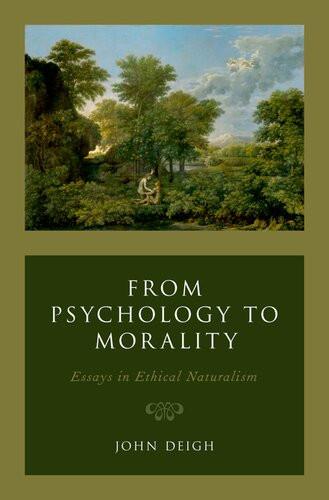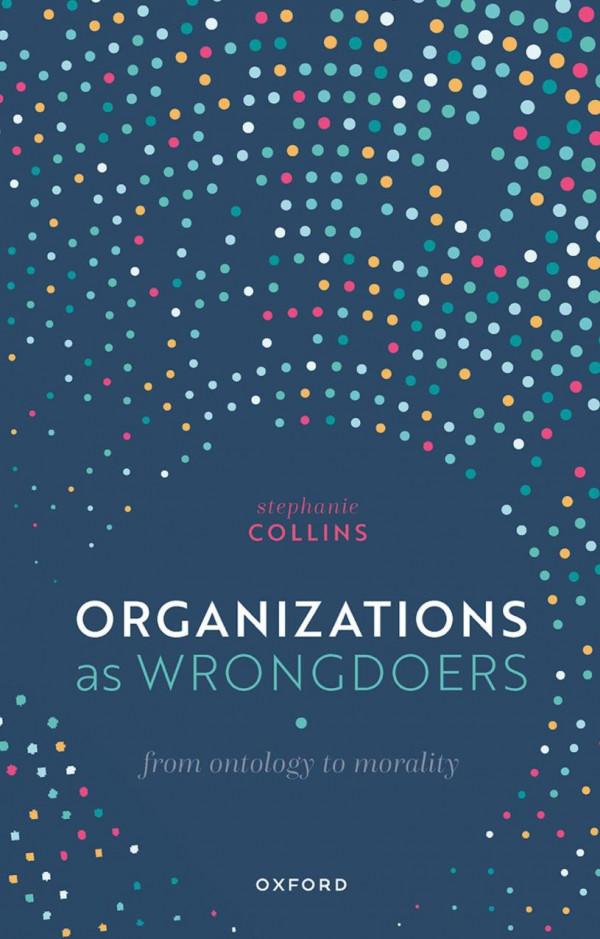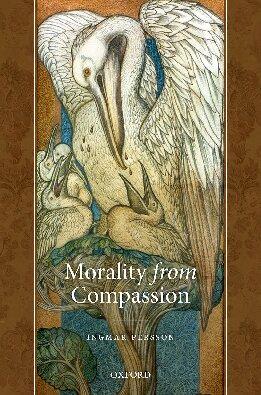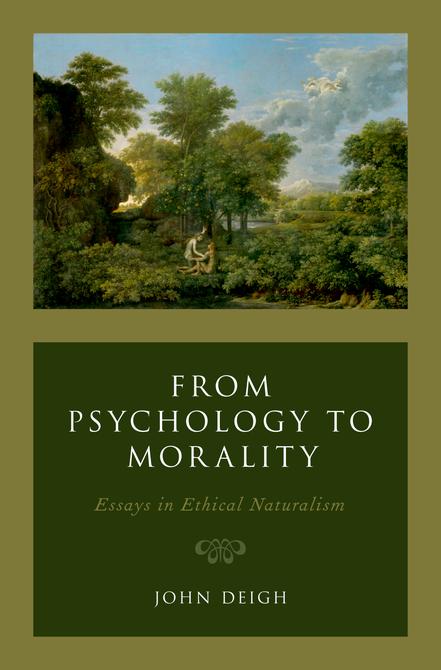Sources
1. “Concepts of Emotions in Modern Philosophy and Psychology” was first published in The Oxford Handbook of Philosophy of Emotion, Peter Goldie, ed. (Oxford: Oxford University Press, 2010). I presented a version of it at the Fifth Annual Royal Conference on Ethics at the University of Texas at Austin in 2008.
2. “William James and the Rise of the Scientific Study of Emotion” is a contribution to a special section on William James’s theory of emotions in Emotion Review 8 (2016): 56–61. It is reprinted by permission of Sage Publications Ltd.
3. “Freud” is a considerably revised and expanded version of the article with the same title in A Companion to Continental Philosophy, Simon Critchley and William Schroeder, eds. (Oxford: Blackwell Publishers, 1998). Parts are reprinted by permission of Wiley-Blackwell.
4. “Psychopathic Resentment” first appeared in Self-Evaluation: Affective and Social Grounds of Intentionality, Anita Konzelman Ziv, Keith Leher, and Hans Bernhard Schmid, eds. (Dordrecht: Springer, 2011) and was based on my contribution to a conference on self-evaluation at the University of Basel in 2009. It is reprinted with permission of Springer.
5. “Reactive Attitudes Revisited: A Modest Revision” is a revised version of my contribution to Morality and the Emotions, Carla Bagnoli, ed. (Oxford: Oxford University Press, 2011). It originated as a paper I gave at the “Emotions in Context” conference at the University of Chicago Law School in 2008.
6. “Is Empathy Required for Making Moral Judgments?” appeared in Forms of Fellow Feeling: Empathy, Sympathy, Concern and Moral Agency, Neil Roughley and Thomas Schramme, eds. (Cambridge: Cambridge University Press, 2018). It was my contribution to a conference on fellow feeling at the University of Essen in 2013. It is reprinted by permission of Cambridge University Press.
7. “Williams on Practical Reason” has not been previously published. An earlier version was my contribution to a memorial conference for Bernard Williams at the Jean Beer Blumenfeld Center for Ethics at Georgia State University in 2006.
8. “Sidgwick’s Conception of Ethics” was first published in Utilitas 16 (2004): 168–183. It originated as my contribution to an American Philosophical Association symposium honoring the work of Jerome Schneewind, which took place at the Pacific Division Meeting in 2003. It is reprinted by permission of Cambridge University Press.
9. “Moral Ideals” appeared in Rationality, Rules, and Ideals: Critical Essays on Bernard Gert’s Moral Theory, Walter Sinnott-Armstrong and Robert Audi, eds. (Lanham, Md.: Rowman and Littlefield, 2002). I presented part 1 of this essay at a conference on Bernard Gert’s Moral Theory at Dartmouth College in 1999 and later at an author-meets-critics session at a meeting of the American Society for Value Inquiry in 2001. It is reprinted by permission of Rowman and Littlefield.
10. “The Emotional Significance of Punishment” was published in Emotion Review 8 (2016): 56–61. It is my contribution to a special issue on law and emotions edited by Susan Bandes and Terry Maroney. It is reprinted by permission of Sage Publications Ltd.
11. “Punishment and Proportionality: Part 1” was published in Criminal Justice Ethics 33 (2014): 185–199. It is a product of my participation in the working group on prison practices and conditions in liberal democracies organized by the Institute for Criminal Justice Ethics at John Jay College, CUNY. It is reprinted by permission of Cambridge University Press.
12. “Punishment and Proportionality: Part 2” appeared in Criminal Justice Ethics 35 (2016): 20–36. Like essay 11, it is a product of my participation in the working group on prison practices and conditions in liberal democracies organized by
the Institute for Criminal Justice Ethics at John Jay College, CUNY. The last part is taken from my contribution to the Fred Berger Prize symposium on Kit Wellman’s article “The Rights Forfeiture Theory of Punishment” at the American Philosophical Association’s Pacific Division meeting in 2015. It is reprinted by permission of Cambridge University Press.
From Psychology to Morality
Introduction: Naturalism in Ethics
Naturalism has a long tradition in ethics. Arguably, it goes back to the beginnings of moral philosophy when Protagoras held forth at Callias’s salon on the origins of justice and conscience in human beings. The speech he delivered, notwithstanding its fabular character, was a piece of natural history about the emergence in human life of cities and the practices that kept them from breaking up and returning their citizens to an existence of scattered and vulnerable families.1 Its pivotal thesis was that all citizens of a city were equipped with justice and conscience just as other animals were equipped with great strength or great mobility. These traits were therefore unlike the skills of craftsmen, each of which only a small number of specially trained citizens possessed. Indeed, that they were possessed by all or nearly all citizens was crucial to the city’s stability and cohesion. Socrates, in asking Protagoras to back up his promise to young men who would put themselves under his tutelage that he would teach them how to excel at being citizens, had expressed skepticism about the possibility of teaching such virtue. He was certain that no one had expertise in looking after a city comparable to the expertise of skilled craftsmen, and he was equally certain that only those
1. Plato, Protagoras 320c10–328d3.
with such expertise could teach a craft. His mistake, according to Protagoras, was due to his looking in the wrong place for teachers of virtue. Because all or nearly all citizens were equipped with justice and conscience and all or nearly all exhibited these traits in their daily lives, any citizen, with the exception of the few who had turned against the city, were suitable teachers. In fact, Protagoras maintained, one often found ordinary as well as distinguished citizens in their engagement with the young teaching them virtue as naturally as they taught them Greek.
Naturalism reached its zenith in ancient philosophy with Aristotle’s ethical writings. Aristotle’s program in ethics was to answer through the study of human psychology the questions that Socrates had asked about how one should live and about the nature of virtue. A deep understanding of the parts and workings of the human soul, Aristotle believed, would show what a good life consisted in and how through the development and exercise of the intellectual and moral virtues it could be achieved. To be sure, Plato too undertook to answer the same Socratic questions through a study of human psychology. He too thought that our coming to understand the parts and workings of the human soul would show us which life was the best for human beings and how one could acquire the virtues necessary to live it. And Plato, needless to say, was no naturalist. The difference between the two, however, is that Plato, unlike Aristotle, attributed to the rational part of the soul powers that gave it access to an intelligible world whose constituents were immutable and eternal and that made the soul itself immortal. Aristotle opposed Plato on these points. While he held that the rational part of the soul distinguished human beings from other animals, he understood the human soul to function entirely within the natural world. Its rational part belonged to the natural world no less than the parts that he identified as common to all animals. His answers to Socrates’s questions thus came entirely from a study of natural phenomena.
The naturalist tradition in ethics went into hibernation during the Middle Ages. Its dormancy was due to the dominance of Christian thought throughout the period. Christian thought had merged with Neoplatonism in the last century of the Roman Empire, and this merger, abetted by Augustine’s making the doctrine of free will one of its fixtures, effectively excluded naturalism from moral philosophy for the millennium that followed. Indeed, the doctrine of free will, which Augustine had advanced to absolve God of any responsibility for human sin, was the most important contributor to the silencing of naturalism during the medieval period. The rediscovery of Aristotle’s ethical treatises in the thirteenth century initiated some movement towards a change in this situation. The great influence of these treatises on
Aquinas led to his promoting natural reason as a source of knowledge independent of revelation, and his doing so in turn prepared the way for the tradition’s revival. But it took more than three centuries of philosophical study after Aquinas’s death and the rise of modern science to bring it about. The most important early modern contributors to the tradition’s revival were Hobbes and Spinoza. Neither man was a friend of Platonic forms or their progeny, and both opposed the doctrine of free will that had long since become Christian dogma. Hobbes thought the very notion of a free will was incoherent. Spinoza thought free will was an illusion. Both pursued ethics—the science of virtue and vice, as Hobbes called it—on the basis of the naturalist-cum-egoist theories of human psychology that they expounded. As a consequence of their radical views, both were targets of vigorous attacks by the defenders of religious orthodoxy, Judaic as well as Christian in Spinoza’s case.
Philosophical resistance to Hobbes’s thought was also fierce. Spinoza, by contrast, spent years in the philosophical wilderness until late in the eighteenth century, when several prominent German thinkers began to take him seriously. In Britain, the impact of Hobbes’s philosophy was immediate. The debates over egoism that his ethics ignited produced two generations of rationalist, particularly Platonist, responses. In time, though, it also produced a new set of defenders of naturalism in ethics. The greatest of these was Hume, whose Treatise of Human Nature surpassed in the depth and subtlety of its theory of human psychology all previous works in British moral philosophy. Hume, like Hobbes, rejected the orthodox Christian doctrine of freedom of the will. At the same time, he went beyond Hobbes in explaining how human actions could be effects of antecedent causes compatibly with their being freely chosen. He then turned to expounding a theory of ethics based on his naturalist psychology. This exposition too went beyond Hobbes, not only in its rejection of egoism, but also in its account of justice as a virtue whose origins lay in the natural history of human beings. Hobbes had built his account of justice on the idea of the natural condition of humankind, but he did not understand this idea historically. The natural condition of humankind, in Hobbes theory, was the condition human beings would be in if they lived without benefit of a government, and such a condition could be the result of a civil war, as Hobbes feared, as well as the original condition of savages. Human behavior, in his view, would be the same in either case.
Hume’s use of natural history to explain the origins of justice cancelled the advantage rationalist opponents of naturalism had seemingly held given the difficulty of reducing justice to either self-interest or benevolence. Nonetheless, naturalists were not alone in using natural history to support
their theories. It did not belong exclusively to their toolkit. The outstanding example of its use outside of naturalism is Rousseau’s account in his Discourse on the Origin of Inequality of the birth and growth of human injustice and cruelty.
Rousseau agreed with Hume in taking justice to have originated in the conventions of property. Unlike Hume, however, who explained these conventions as the consequence of cooperative schemes that human beings invented for their mutual advantage, Rousseau explained them as the consequence of consent to the appropriation of land by those who worked it. This difference between the two views is crucial. For Rousseau, in making consent to being excluded from the use of land by another’s declaring it his own the origin of justice, implied that justice and consequently injustice derived from the operations of the human will. Of course, if Rousseau had thought that a man’s will was itself determined by natural forces, his view would not have been crucially different from Hume’s. But Rousseau held exactly the opposite view:
I see nothing in any animal but an ingenious machine . . . I perceive exactly the same things in the human machine, with this difference, that in the operations of the brute, nature is the sole agent, whereas man has some share of his own operation, in his character as a free agent. The one chooses and refuses by instinct, the other from an act of free will.2
Rousseau’s project was to explain the wretchedness of the human condition as entirely the work of men. He reiterated his theme in the opening sentence of Emile, “Everything is good as it leaves the hands of the Author of things; everything degenerates in the hands of man.”3 It is hard to think of a better coda for Augustine’s doctrine.
The brilliance of Rousseau’s natural history lay in its developmental story of how humans began their sojourn on earth as innocent, solitary beings with simple desires for the necessities of self-preservation and then, as the result of their entering into stable and complex social relations of increasing extent and complexity, acquired new desires that eventually made them capable of both moral virtue and moral vice, with a decided tendency towards the latter. What is striking about this history is its implication that human beings create the social structures that make it possible for them to achieve moral virtue or sink into moral depravity. Morality, in other words, on this history, is an artifact of human culture, and therefore human beings, rather than possess a
2. Jean-Jacques Rousseau, Discourse on the Origin of Inequality, in The Social Contract and Discourses, G. D. H. Cole, trans. (New York: E. P. Dutton & Co., 1959), p. 207.
3. Jean-Jacques Rousseau, Emile, Allan Bloom, trans. (New York: Basic Books, 1978), p. 37.
conscience and moral sensibilities innately, acquire them through acculturation. While this view may have had earlier exponents, no one had expounded it more forcefully or imaginatively than Rousseau.
Of course, the view itself poses no threat to naturalism in ethics. After all, it is open to defenders of such naturalism simply to disagree with Rousseau about the origins of morality. They could, as against Rousseau, explain conscience and moral sensibilities as being among our inherited powers and dispositions. No doubt, many followers of Darwin would explain them in this way. Nonetheless, a growing disenchantment with teleological explanations of human nature, accelerated by the appearance and acceptance of Darwin’s theory, increased the attractiveness of Rousseau’s thesis that morality is wholly an artifact of human culture as an alternative to the supposition that conscience and moral sensibilities are part of man’s natural endowment. It remained then for thinkers in the naturalist tradition to construct theories of the development of conscience and moral sensibilities that substantiated Rousseau’s thesis.
The two most influential theories of this sort were Nietzsche’s and Freud’s. Both men expounded thoroughly naturalist accounts of the workings of the human mind. Their understanding of these workings, however, was decidedly different from that of the associationist psychology that Hume had expounded and bequeathed to nineteenth-century British empiricism. Nietzsche and Freud based their accounts of the mind’s workings, not on principles of association, but rather on the dynamics of unconscious conflict among instinctual forces, and they used these dynamics to explain the formation in human beings of a conscience and moral sensibilities. Nietzsche weaved his explanations into the natural histories he offered in On the Genealogy of Morals. Freud made his explanations central to the individual psychology he developed and then fit them to a historical account of the emergence of conscience in human beings. Both took up Rousseau’s theme of representing the emergence of conscience as involving a transformation of human nature. Of the two theories, Freud’s had the farthest reach in its influence on subsequent thought. And to the extent that the view of morality as an artifact of human culture was widely accepted, his theory did more to advance naturalism in ethics than any other theory in psychology or social science put forward in the last century.
The essays collected in this volume belong to the naturalist tradition whose course I have just sketched. The first ones are studies in psychology that bear on questions of ethics. Before one can take up the central question of ethics concerning how to live, one must come to some understanding of the place of desires and emotions in our lives and how reason works to
direct their promptings. On a naturalist understanding of human nature, desires and emotions are the ultimate springs of our action, while reason provides us the intelligence we need to act well. The first essay is a critical survey of the major concepts of emotion in modern philosophy and psychology from the older, empiricist concepts of the eighteenth and nineteenth centuries to the present. The discussion highlights the importance of the theories of William James and Sigmund Freud first in overthrowing these older concepts and then in shaping later conceptualizations of the phenomena. The next two essays focus on James’s and Freud’s theories respectively. The essay on James explains how his concept of emotion derived from Hume’s distinction in the Treatise between calm and violent passions and then argues for the unsuitability of James’s concept for ethics and, indeed, for any field in which emotions are conceived of as motives. I conclude that recent attempts in neuroscience and philosophy to resurrect James’s theory are dead-ends. The essay on Freud has two movements. In the first I trace the development of his thought from his original theoretical work on the neuroses exhibited in hysteria and obsessive behavior to his construction of a general theory of human personality and its disorders. In the second, I explain the philosophical import of his theory as a contribution to the naturalist tradition in Western thought and how it made significant advances over its predecessors.
The two essays that follow deal obliquely with the doctrine of free will. Their aim is to vindicate the strategy for dealing with the doctrine that P. F. Strawson pursued in “Freedom and Resentment,” his landmark address to the British Academy. Strawson’s strategy was to give a naturalist account of our practice of holding people morally responsible for their actions. Such an account, if successful, would negate the proposition that a person is morally responsible for an action only if the action resulted from his or her exercising a free will, and Strawson used a study of certain emotions that he called “reactive attitudes” to show how one could give such an account. He thus supplied naturalism with a powerful argument against one of the main bulwarks of the doctrine. His address has had enormous impact on subsequent philosophical treatments of the question of free will. Many philosophers, writing under the influence of his argument, have drawn their accounts of moral responsibility from considerations of the reactive attitudes. Yet despite this impact, his argument has won few converts to naturalism. The reason is that it has been poorly understood. The misunderstanding is twofold. First, philosophers who have taken themselves to be following Strawson commonly mischaracterize the way he understood resentment. Second, the same philosophers have failed to grasp the crucial role of naturalism in his argument, and, consequently, their
accounts of moral responsibility do not threaten views on which moral responsibility implies an exercise of free will or at least do not threaten such views in the way Strawson saw his argument as doing. “Psychopathic Resentment” corrects the first misunderstanding. “Reactive Attitudes Revisited” corrects the second.
The sixth and seventh essays in the collection shift the focus to naturalist accounts of moral judgment and practical reason. The sixth essay examines the place of our capacity for empathy in making moral judgments. Hume’s ethics is commonly interpreted as taking empathy— what Hume called “sympathy”— to be a necessary factor in our making moral judgments, and its role in his theory supports his thesis that moral judgments are inherently motivational. Against Hume, I argue for a more capacious understanding of moral judgment. This more capacious understanding fits Piaget’s account of how moral judgment develops in children, and Piaget’s account, I further argue, offers a better framework than Hume’s for investigating the motivational character of moral judgments. The seventh essay is a partial defense of Bernard Williams’s view that the source of an agent’s reasons for action is, in every case, some element in the agent’s set of desires, emotions, evaluative dispositions, inclinations, and the like. Williams’s view is defensible when one takes reasons for action as facts an agent considers when deliberating about what to do, given an Aristotelian notion of deliberation. It is indefensible when one takes reasons for action to be facts an agent considers when determining whether doing the action would be or was justified. Much of the controversy that Williams’s view stirred, including some of the most virulent objections to it, is due to confusion of these two different ways of understanding reasons for action. After explaining the confusion, tracing its origins to the beginnings of the philosophical literature on reasons for action in Anglo-American philosophy, and dispensing with the objections that were based on it, I defend Williams’s view against objections, Christine Korsgaard’s, in particular, that were not based on it.
The eighth essay also focuses on practical reason. Sidgwick’s conception of ethics is its specific topic. Sidgwick, in his masterwork The Methods of Ethics, proposed to treat each of the main theories of ethics as being rooted in a rational procedure for determining what one ought to do. In short, he conceived of ethics as the study of practical reason. He took egoism, utilitarianism, and dogmatic intuitionism as the main theories to be examined with the aim of showing that they could be unified. Such unification requires that the theories agree on the sense in which ‘ought’ is to be understood in moral imperatives of the form A ought to φ, where A is the name of an
individual and φ is a verb of action. When egoism is formulated as a naturalist theory, however, the sense ‘ought’ has in these moral imperatives is different from the sense it has in the moral imperatives of dogmatic intuitionism. The reason is that on such a formulation, on Hobbes’s formulation, for instance, the starting assumption is that a brute desire for one’s own’s happiness predominates among the moving forces in one’s life. Consequently, on this formulation, moral imperatives of the form A ought to φ are hypothetical in Kant’s sense. By contrast, on dogmatic intuitionism, the sense ‘ought’ has in moral imperatives of this form is categorical in that, unlike hypothetical imperatives, the conditions of their validity do not include A’s having a desire that A would satisfy by φing. To be sure, a naturalist formulation of egoism was not Sidgwick’s preferred formulation. He preferred a rationalist formulation. Its starting assumption was that reason prescribed one’s own happiness as the ultimate end of action. But he allowed the possibility of a naturalist formulation. The upshot of his doing so, as I argue, is that his project of unifying the three theories was foredoomed.
The ninth essay is a contribution to a volume of critical essays on Bernard Gert’s moral theory. It is chiefly a critical discussion of Gert’s treatment of moral duties and moral ideals. The central aim of Gert’s theory is to represent morality as a set of precepts that all rational and impartial persons would favor everyone’s following. Construction of such theories was common in ethics in the latter half of the twentieth century, and Gert’s construction is an especially clear and uncomplicated example of this type of theory. Gert divided the set of moral precepts into rules and ideals, though in truth he could have called them all rules and divided them into those that were meant to constrain action and be enforceable by punishment and those that were meant to promote action without the threat of punishment. He thus conceived of morality as a set of rules regulating behavior. This conception too was common to the type of theory his exemplified.
The thrust of my criticism is that Gert’s is an impoverished conception of morality. Morality is as much concerned with our inner life as it is with regulating behavior. It contains, for instance, a duty of benevolence as well as duties not to kill and to keep one’s promises. Gert thinks the very notion of a duty of benevolence is problematic. Moral duties, he declares, correspond to rules that either forbid or require that certain actions be done, and requiring general benevolence would mean, he then argues, that a person would have to act benevolently all of the time towards everyone, which is impossible. If, however, one takes morality to guide the will or prescribe dispositions and not merely to regulate behavior, the problem Gert alleges does not arise. On this conception of morality, the duty of benevolence is the
duty to maintain a good will or a benevolent disposition towards all, which means that what is required to fulfill it is a commitment of the will and not an action. Such a commitment, I argue, is certainly possible. I conclude by sketching an account of moral ideals on which they are understood as models or exemplars and not rules.
The collection closes with three papers on punishment. The standard treatment of the topic in philosophy has for decades taken legal punishment as the paradigm case. Accordingly, philosophers writing on punishment have commonly understood its infliction as an institutional response to a breach of an institution’s rules. My treatment of the topic in these three papers rests, instead, on a broader understanding of punishment. On this understanding, punishment is as much at home in a natural context as an institutional one. The broader context is that of a stable social group. Outside of an institutional context, punishment is pain or loss inflicted by a member of the group on another member who is equally or less powerful in retaliation for the latter’s having displeased or angered the former. Within an institutional context, it is pain or loss inflicted by an agency formally empowered to enforce the rules of the institution in retaliation for their having been violated. In either case, it works to preserve the group’s social order, which is either natural or civil according as the relations of power among the members are unmediated or mediated by rules. This understanding covers not only legal punishment but also punishment that one country inflicts on another in retaliation for the latter’s having attacked its citizens or property, punishment that mob bosses inflict on underlings in retaliation for the latter’s having betrayed them to another mob or to some government authority, and punishment that husbands or wives inflict on their spouses and parents inflict on their children in retaliation for being angered by their spouses or children. All three papers take as their point of departure this broader understanding of punishment.
The first of the three, “The Emotional Significance of Punishment,” explains how punishment works to preserve a group’s social order. I identify three functions that it has in this respect. It deters those inclined to act in ways that disrupt the order from doing so; it strengthens the disposition to maintain the order of those who are not so inclined by assuring them that disruptive acts are not tolerated; and it provides a means by which its recipients can repair the social relations they had ruptured. The explanation of the last function, punishment’s reparative function, proceeds from an account of the dynamics of these social relations that reprises the discussion of reactive attitudes in the collection’s earlier essays. Punishment has these three functions, not by design, but by virtue of how retaliatory behavior within a













